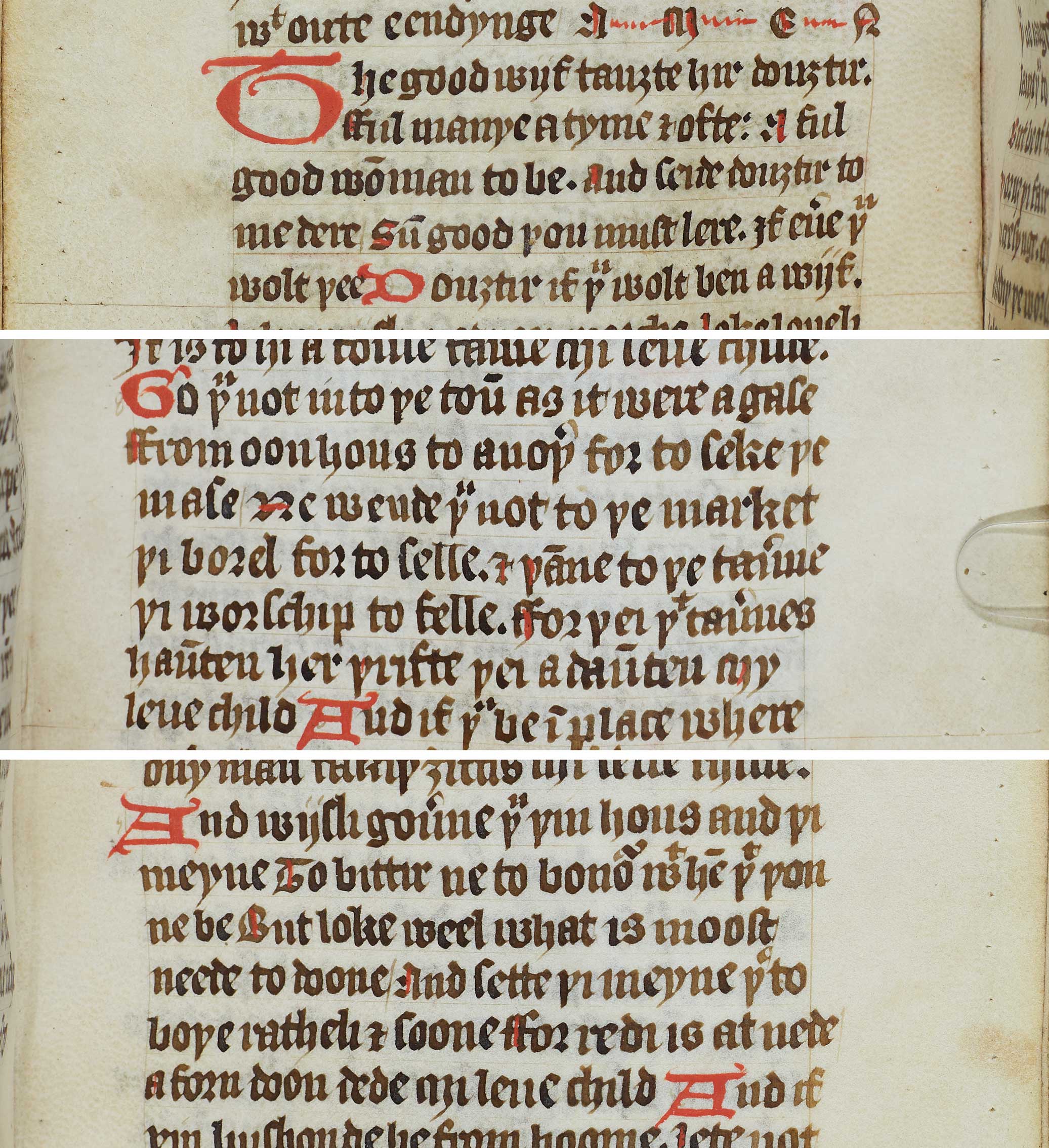
This is an extract from a fourteenth-century poem, ‘How the Good Wife taught her daughter’ from ‘Women in England c1275-1525 : Documentary sources, translated and edited by P. J. P. Goldberg (Manchester, Manchester University Press, 1999), pp. 97-103. One of the manuscripts is London, Lambeth Palace Library MS 853 (image).
Transcript
The Goodwife taught her daughter
Very many times and often
A truly good woman to be
And said Daughter to me dear,
Some good you must learn,
If ever you would thrive.
…
Go you not into town as if you were a flighty person
From one house to another in search of vain amusement
And go not to the market your burrel [a type of cloth] to sell
And then to the tavern to destroy your reputation
For they that haunt taverns
Their prosperity they bring down
My dear child.
…
And wisely govern your house and your servants
Be you not too bitter nor too kind with them
But look well what needs to be done
And set your servants thereto both quickly and soon
For ready when
Is a task already done
My dear child.
Task 6 – Women and education
- Does the law concerning education of girls and boys in Source 6a surprise you? Give your reasons.
- Can you explain why the education of girls and boys would be different at that time?
- What does the poem in source 6b infer about the education that girls received?
- What does source 6c suggest about education for girls?
- What does source 6d say about what kinds of education were available for girls?
- Looking at all the sources together, what do you think girls’ educations were like at this time?
- How different is education for girls and boys today?
